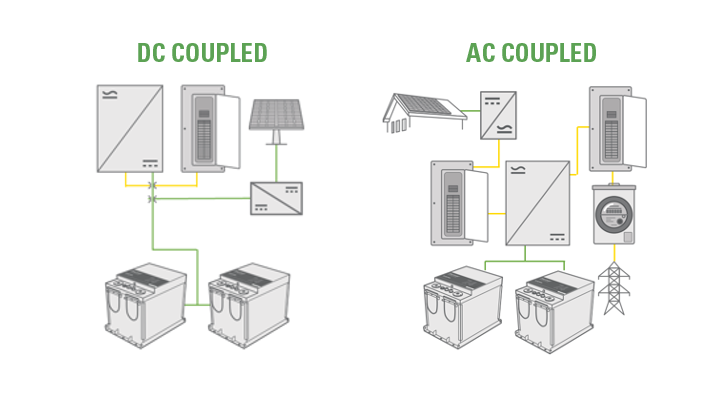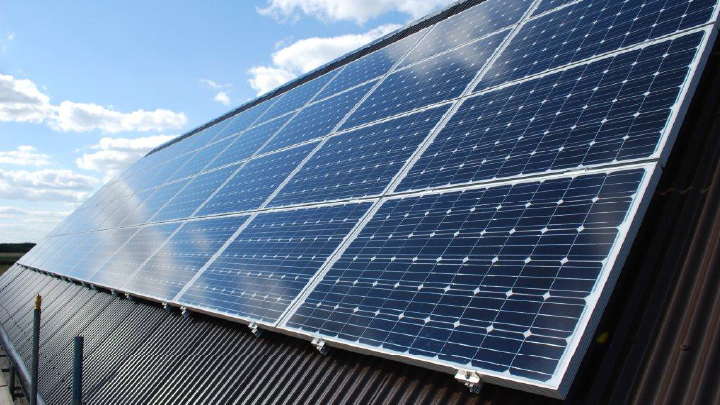DC and AC coupling are phrasing most people in the solar/energy storage industry have heard. What is coupling in terms of a solar (PV) system related to energy storage?
Coupling simply refers to how the electrons harvested by solar panels are coupled (connected) to electrical busses (AC and/or DC).In an AC coupled system we see power being immediately converted to AC from the direct current (DC), PV source by a grid-following/grid-tied inverter such as a string or micro-inverter. As batteries and energy storage require a DC source to charge, that AC energy will need to be converted back to DC before charging the battery. This is typically accomplished through a multi-mode/hybrid/grid-forming inverter.
AC Coupling can help with familiar string sizing and design, grid tied installers may be used to. It is also a useful solution when it comes to retrofitting a storage system onto an existing grid tied PV array with minimal rewiring.
In a DC coupled system we see direct current from the solar panels going into a DC/DC converter (typically an MPPT solar charge controller). On the output of the charge controller the DC voltage and current can be set to the correct targeted set points the battery system requires for charging. As with AC coupled systems, we still have a multi-mode inverter that inverts this DC to AC for purposes of powering electrical loads or selling power back to the grid.

DC coupled system require less conversion than AC coupled systems, avoiding the extra step of DC-AC (at panels) back to DC (at battery). This not only has a positive effect on efficiency but also ensures seamless transition of the PV panels when a system loses grid power. when choosing a coupling method for an off-grid system, DC coupling should almost always be utilized with a few exceptions such as purpose-built AC coupled off-grid inverters and large micro-grid systems.
When it comes to efficiency AC coupling is more efficient than DC coupling if you're consuming at the time you're generating/. DC coupling however is more efficient if the energy is being stored.
With an AC Coupled system we have no black start like we do in a DC coupled system.
Controlled charging in back-fed scenarios relies on metering and controls for proper VDC regulation and for rapid and proper response to frequency shift signals to curtail output. These are natural with DC/DC converters but much more complicated with AC coupling. Result is requirement for bigger battery banks in AC coupling and an additional risk of overcurrent shutdown of the batteries.
PV string wiring has often been a main factor in which type of coupling an installer prefers. With the rise of larger voltage range MPPT charge controllers we are seeing more efficient PV wiring with DC coupled designs. Also, many multi-mode inverters are starting to integrate these charge controllers directly into the inverter unit. These advancements are making DC coupling an easy to use and efficient option.
AC coupling always limits the ratio of production to the size of the hybrid inverter. A 6.8kW inverter/charger can only take 6.8kWh of back fed AC, whereas you can have 10 x MPPT 100A (50kW) on a bank with only a 3kW inverter if that was best for the application.
So, which one is right for your specific project? The answer will greatly depend on the specific use case, existing design, and installer knowledge. The pros at Discover are here to help answer these types of questions and more, so reach out now!







